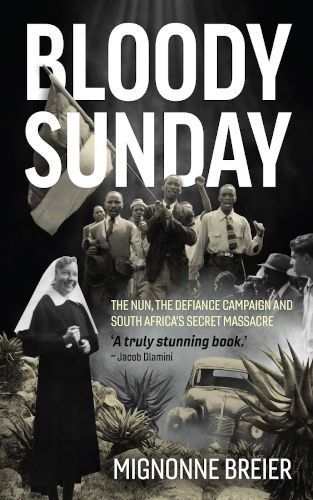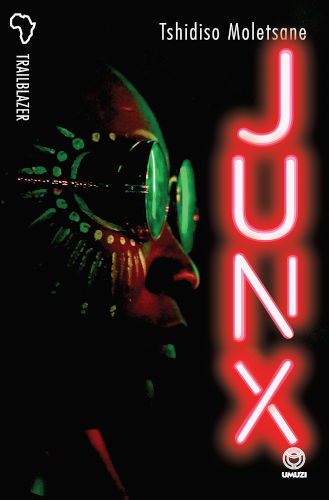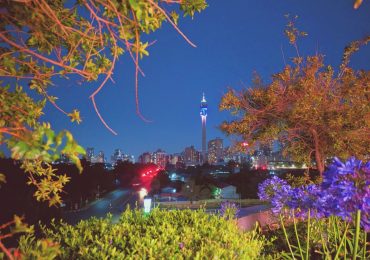The winners of the 2022 Sunday Times Literary Awards have been announced.
Mignonne Breier has won the Non-fiction Award for her book Bloody Sunday: The Nun, the Defiance Campaign and South Africa’s Secret Massacre, and Tshidiso Moletsane is the winner of the Fiction Prize for his novel Junx.
The winners were announced at an in-person event in Hyde Park on Thursday evening.


The two awards celebrate ‘the best of South African non-fiction and fiction’ from the previous year. This year marks the 32nd anniversary of the non-fiction award, and the 21st year of the fiction prize. Each winner receives R100,000, marking the award as one of the richest literary prizes on the continent.
For the Non-fiction Award, the criteria is: ‘The winner should demonstrate the illumination of truthfulness, especially those forms of it that are new, delicate, unfashionable and fly in the face of power; compassion; elegance of writing; and intellectual and moral integrity.’
Bloody Sunday explores the massacre at an ANC Youth League event in Duncan Village, East London, in 1952, where police killed more than two hundred people, and the mod-led murder of Sister Aidan Quinlan, an Irish nun and medical doctor who ran a clinic in the area.
The Non-fiction Award judges, Griffin Shea (chair), Nomavenda Mathiane and Bongani Ngqulunga, said of Breier’s book:
‘In this stunning book, the author left no stone unturned, which brings into sharp focus the hard life residents led in those days and goes a long way to illustrate the persecution of the leaders by the police.’
Shea said:
‘For a moment when we are trying to figure out how the country, and the world, have ended up such a mess, Breier’s Bloody Sunday reminds us things were always messy. True to her journalistic tact, she quotes others to convey those meanings she wants to get across. She quotes Njabulo Ndebele in a speech he gave at the anniversary of the massacre: “The more we tell the story of what we did, we create the possibility that through our efforts we can create the future that we still desire”.’
For the Fiction Award, the criteria is: ‘The winner should be a novel of rare imagination and style, evocative, textured and a tale so compelling as to become an enduring landmark of contemporary fiction.’
The panel of judges for the Fiction Award, Ekow Duker (chair), Kevin Ritchie and Nomboniso Gasa, called Junx a ‘tour de force … bold, raw and surprisingly elegant Gonzo-style writing’.
Moletsane’s novel begins at a party in Dobsonville, where our protagonist shares a joint with Ari, his imaginary friend, and a rollercoaster of a night begins, involving stolen cars, brothels, sex, drugs and anxiety.
Duker said:
‘Junx by Tshidiso Moletsane stood out in a quadrant all on its own. It is an exceptional novel written in a style that is “in your face” and brutally honest. In other words, it is difficult to get along with. It drags the reader into the filth and drug-fuelled exhilaration of a Johannesburg many of us keep at bay through the artifice of rolled up car windows, carefully delineated travel routes and gated communities.’
Last year’s Sunday Times Literary Award winners were Marguerite Poland, who won the Fiction Award for her novel A Sin of Omission, and Andrew Harding, who won the Non-fiction Prize for his book These Are Not Gentle People.





